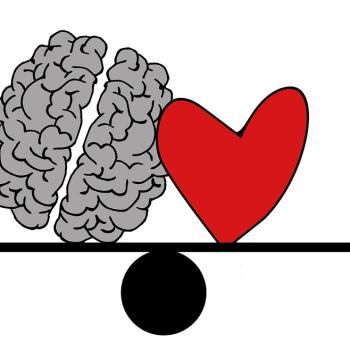
A. The Story of Stories
When Homo Sapiens Sapiens developed language around 70,000 years ago, I believe that the very first use to which they put it was storytelling. There was a sequence and a protocol to the process. Arap Chito had just encountered a leopard in the bush of East Africa. Luckily, he escaped, but even as the cortisol was rushing through his system, he was rehearsing the encounter with his internal language skills – what de Saussure would call, the signified (internal image) and the referent (the real live leopard), so as not to forget its significance. That night, around a campfire of his 25-person tribe, he would share with them his encounter using signifiers (words.) He will thus accomplish four objectives: firstly, he will transfer this new knowledge to the other 24 minds; secondly, he will archive this knowledge in the tribal memory for future generations; thirdly, it will be a bonding exercise; and, fourthly, it will be entertaining.
Indeed, stories are the archived wisdom of any culture, and pithy proverbs its distillation – the “cheat sheet” to be accessed when time is of the essence.
In the summer of 1963 between my junior and senior years in high school, I spent three months in a Gaeltacht (places where the working language is still Gaelic) called, Cúil Aodh, collecting proverbs – seanfhocail (ancient words) is what we call them in Irish. I systematically visited all of the elders asking, “Can you give me some proverbs and tell me the context in which each one would be used?” At the end of the summer I had collected 432 of them.
One old man said to me, “If Christianity had never come to Ireland, we could live according to the seanfhocail.” He was probably correct because I came to realize that there was a proverb for every situation.
I learned something else as well about proverbs: they frequently contradict each other, because for every situation A demanding proverb X, there is an opposite situation B, demanding proverb Y. The following are some examples.
In Irish: “Níl aon tinteán mar do thinteán féin” (there’s no fireside like your own fireside) is contradicted by, “Bíonn blas ar chuid an chomhairsin” (there’s a special taste to the neighbor’s food.)
In English: “Look before you leap.” But “He who hesitates is lost.”
In Kiswahili: “Haraka, haraka haina baraka.” (hurry, hurry has no blessing) but “Chelewa, chelewa mtoto si wako.” (delay, delay and the baby will not be yours.) – go on, figure that one out!
In Latin: “Festina lente” (hasten slowly”) but “Carpe diem” (seize the day)
B. Disparate Cultures in Support of Each Other
All popular “wisdom” to the contrary, scientific studies in psychology show that multitasking is NOT an efficient use of time. Irish agrees: ”I ndhiadh a chéile a thógtar na caisleáin” (one after the other are the castles built). Kiswahili concurs: “Upole ndiyo mwendo” (slowness is sureness). And the Greek story of the hare and the tortoise says it elegantly.
Or take the notion of family and elders. The Hebrew scriptures tell us: “Honor your father and your mother that you may live long in the land.” Confucius claimed that the notion of the separate self was an illusion created by the sum of our social roles; hence his teaching is about the “five constant relationships” i.e. That of husband and wife; that of parents and children; that of elder brother to younger siblings; that of teacher and student; and, finally, that of emperor to subjects.
Mammals, who arose about 200 million years ago, introduced sustained parenting into the equation of evolution; and the sciences of psychology, sociology and anthropology managed to codify it – with a few notable blunders like B. F. Skinner (the great behaviorist) raising his daughter in a stimulus-response “Skinner Box”; or the campaign to end breastfeeding in favor of a pharmaceutical formula.
As an aside, in the Baringo desert, I once encountered a young Tugen mother with a very sick two-year-old child. She had sold a dozen eggs from her own chickens in order to buy and feed her baby a bottle of Coke because of a tin poster nailed to a duka (little shop) that proclaimed, “Coca-Cola huleta nguvu na afya!” (Coca-Cola always brings energy and health!)
Kalenjin has an interesting proverb, “Nda samis muryat, ko bo go nebo (even though the rat is dirty he is part of the household.) It’s their version of loving even the “black sheep” – if you don’t mind me mixing my metaphors!
And what about the Howard Loomis story? Back in 1918, Howard was abandoned by his mother at Fr. Flanagan’s Home for Boys. Howard had polio, wore leg braces and found it very difficult to manage stairs. Older boys sometimes carried him up and down the steps. One day Fr. Flanagan asked one of these boys – Reuben Granger – if it was difficult. Rueben replied, “He ain’t heavy, Father, he’s my brother.”
C. De-mythologizing Life
Remember the famous detective, Joe Friday from Dragnet, who regularly insisted, “just give me the facts ma’am, just the facts.” Joe had no time for stories. But when you nix storytelling, you demythologize life, thus reducing the person to merely a set of numbers e.g., Social Security Number, bank codes, a ticket that allocates your place in line in the supermarket, car registration, phone number, postal address… even your jail identity!
A Maasai herdsman knows all his – very many – cattle by name; while your modern European Union farmer has a number stapled on to the ear of all of his nameless cows.
For the last 20 years of his life my father lived in a house with a red door in a remote area of West Cork. His actual postal address was:
Teach Dearg
[The Red House]
Scairtínacillín
[near the little bush by the children’s graveyard]
Béal an Dhá Chab
[at the mouth of the two river fords]
Contae Chorchaigh
[in the county of the marshy lands]
while my address is merely a 3-digit PO Box in Healdsburg CA 95448. I live in the forest where they don’t deliver mail.
I suspect that they could actually drop both the city’s name and the name of the state, and it wouldn’t make a difference to the USPS.
So, dear reader, tell me this and tell me no more (to use an Irish idiom), which of these two addresses tells you more about where my father lived and where I live? It’s like we have taken a vibrantly alive, high definition, color video, reduced it to a still photo and drained it of all but gray tones.
Is it any wonder that, today, more people die of suicide than die of warfare? When you drain life of stories, you drain it of meaning; and when you drain it of meaning you create a nightmare out of God’s dream – the miracle of the cosmos.
What pseudo-scientific sicko thought this up?
















